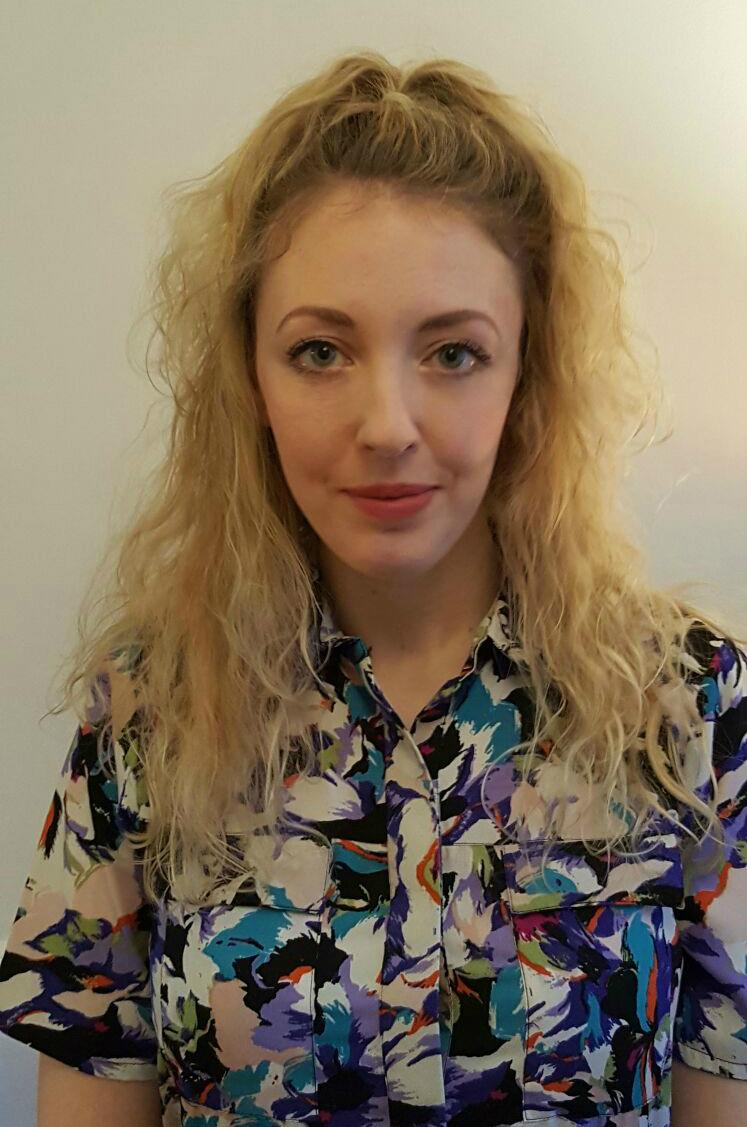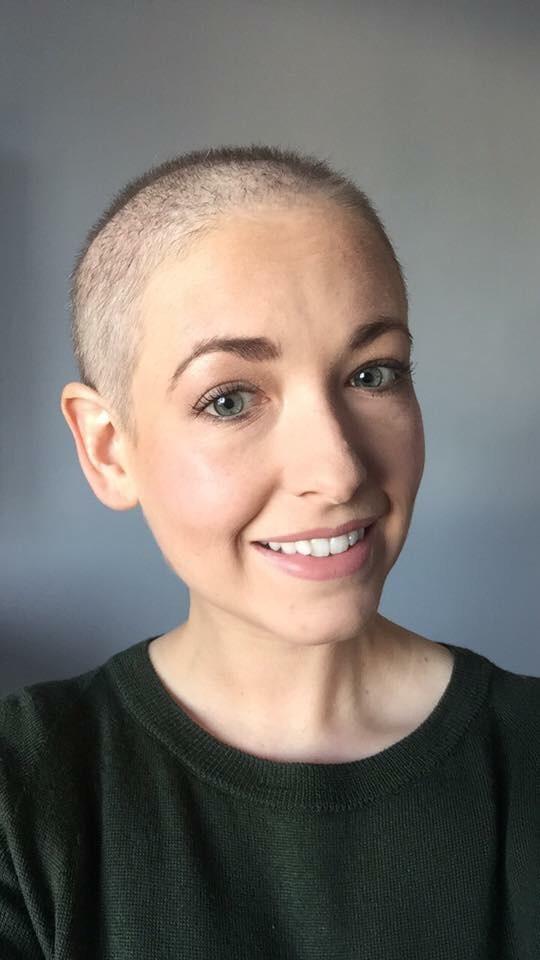Gynaecological cancers: The diseases affecting women which come with easily mistakable symptoms
A woman with ovarian cancer explains the difficult decision she had to make over her fertility at a very young age

Your support helps us to tell the story
From reproductive rights to climate change to Big Tech, The Independent is on the ground when the story is developing. Whether it's investigating the financials of Elon Musk's pro-Trump PAC or producing our latest documentary, 'The A Word', which shines a light on the American women fighting for reproductive rights, we know how important it is to parse out the facts from the messaging.
At such a critical moment in US history, we need reporters on the ground. Your donation allows us to keep sending journalists to speak to both sides of the story.
The Independent is trusted by Americans across the entire political spectrum. And unlike many other quality news outlets, we choose not to lock Americans out of our reporting and analysis with paywalls. We believe quality journalism should be available to everyone, paid for by those who can afford it.
Your support makes all the difference.Gynaecological cancers are sometimes referred to as the ‘silent’ type because of their vague symptoms that can be mistaken for other conditions.
When Karen Hobbs, 27, did what most of us do with disconcerting symptoms – typed them into Google – it came up as most likely being a sexually transmitted infection such as chlamydia, so she headed down to the sexual health clinic and told them she had been bleeding in between periods and after sex.The test came back negative and the nurses told a 24-year-old Karen that her cervix was inflamed.
“I was actually disappointed I didn’t have chlamydia as this meant it was more likely that something serious was going on, which of course it was,” she told The Independent.
Karen was diagnosed with cervical cancer. Her cervix was removed during surgery and luckily the cancer had not spread any further. Being 24, Karen would not have yet had a smear test which is advised for all women after they turn 25 and is then repeated every three years.

In January, alarming figures from the charity Jo’s cervical cancer trust revealed that more than a quarter of a million women aged between 25 and 29 didn’t have a smear test because they felt too embarrassed. More than two thirds of women (70 per cent) did not think they reduce a women’s risk of cervical cancer.
Being embarrassed and ill-informed is another contributing factor to the delay in diagnosis of women’s cancers. LA-based gynaecologist Dr Sherry Ross told The Independent earlier this year that, according to studies, 65 per cent of women said they were embarrassed to even say the word “vagina”. In 2015, the Lady Garden Campaign was started by a number of women including Chloe Delevingne (the elder sister of models Poppy and Cara) in order to get women talking about their anatomy.
While women who have had children, and therefore been subject to much more gynaecological examinations, than those younger them may be more comfortable in discussing this, these ‘silent’ cancers do affect young women. More than half of cervical cancer diagnoses in the UK are in females under 45 and almost half (47 per cent) of cases of ovarian cancer are in women under 65.
Early stages of the latter sometimes comes with no symptoms at all and when they do appear, they are often mistaken for more common conditions like Irritable Bowel Syndrome (IBS).
"Ovarian cancer is not often a doctor's first thought when a woman presents symptoms, as it's much more likely to be something less sinister," Tracie Mills, gynaecological cancer information nurse at The Eve Appeal, told The Independent. "... This can mean that it is often diagnosed at a later stage and therefore treatment options are limited and the outlook isn't as positive as an early diagnosis." She said that if a woman experiences symptoms including bloating, pain, needing to urinate more frequently or feeling full quickly persisting for at least three weeks they should see a doctor.
Nicki Jones has just turned 31-years-old and is on her fifth round of chemotherapy. She was diagnosed with ovarian cancer last year after experiencing symptoms including lower back pain, occasional severe abdominal and pelvic pain, weight gain and feeling bloated.
“In my head I had put this down to too much indulgence on a recent hen do to Ibiza and maybe IBS or something similar,” she tells The Independent. “ I was very active and attending bootcamp and kettlebell classes usually three times a week as well as playing tennis for my local club however this weight just wouldn’t shift and I could no longer do up my work trousers.”
Nicki’s GP immediately detected a “mass”, after ruling out a pregnancy and ectopic pregnancy, she had an ultrasound.
“It was terrifying and seemed to go on forever. I remember the lady performing the ultrasound asking whether I had children or not at the end of my scan, I took that as a bad sign,” she says.
Initially, Nicki had one operation scheduled as one of the medical team said she may just be suffering from a complex cyst on the ovary rather than cancer. However, on the operating table, surgeons discovered it was ovarian cancer and that it had potentially spread to her womb, bladder and diaphragm and had considered performing a full hysterectomy there and then but decided to give her some options.

“My world turned upside down, I had no idea how I was going to tell my partner or my family,” she recalls.”… Initially I did wish they had removed everything during the surgery. You are so petrified of cancer and dying that the thought of it still being inside you is almost too much to bear but I understood that they wanted to give me fertility saving options where possible and after the initial shock I really wanted that too. “
Nicki was faced with a decision that she had not expected to make so rapidly at 30-years-old. Having previously shared their desire to have children at some point, she and her partner decided that if it was possible she would freeze her eggs. However, just a short amount of time later the surgeon advised to proceed with chemotherapy straight away – disallowing for time to harvest the eggs. While it was her decision, she agreed her health came first and she underwent surgery in February in Liverpool.
“The thought of having a hysterectomy at 30 years old is petrifying. You are thrust immediately into what is referred to as a surgical menopause, no gradual build up as you age, literally straight out of theatre and I would be in the menopause,” she explains. “I had all kinds of thoughts. Firstly, I was actually excited to have all the cancer out, I know it is strange to say you are excited for surgery but, when you are going through cancer treatment, knowing you are able to have surgery and they are able to remove it becomes the all-encompassing thing in your treatment, your life even. Secondly I was terrified what the menopause was going to do to my body and mind.”
The operation was a success and there was no evidence of any cancer remaining; she has one more round of chemotherapy left.
While the treatment has gone the best way possible, there are adjustments for Nicki, she is adjusting to life-altering treatment.
“I can’t say that I am happy with my body but I also can’t really say whether that is due to the side effects of chemo, my surgeries or the menopause. All in all it definitely makes you feel a million miles away from sexy, attractive, or desirable. Having no hair and a pretty substantial scar isn’t really top of my list of body aspirations but I know it will get better.”
While the treatment has gone the best way possible, there are adjustments for Nicki from her life-altering treatment. But all in all, Nicki feels lucky to be here. In this modern age of medicine, her hopes of having a family have not evaporated and nor should they. But, rightly so, her priority is her own recovery.
Join our commenting forum
Join thought-provoking conversations, follow other Independent readers and see their replies
Comments